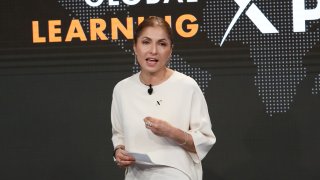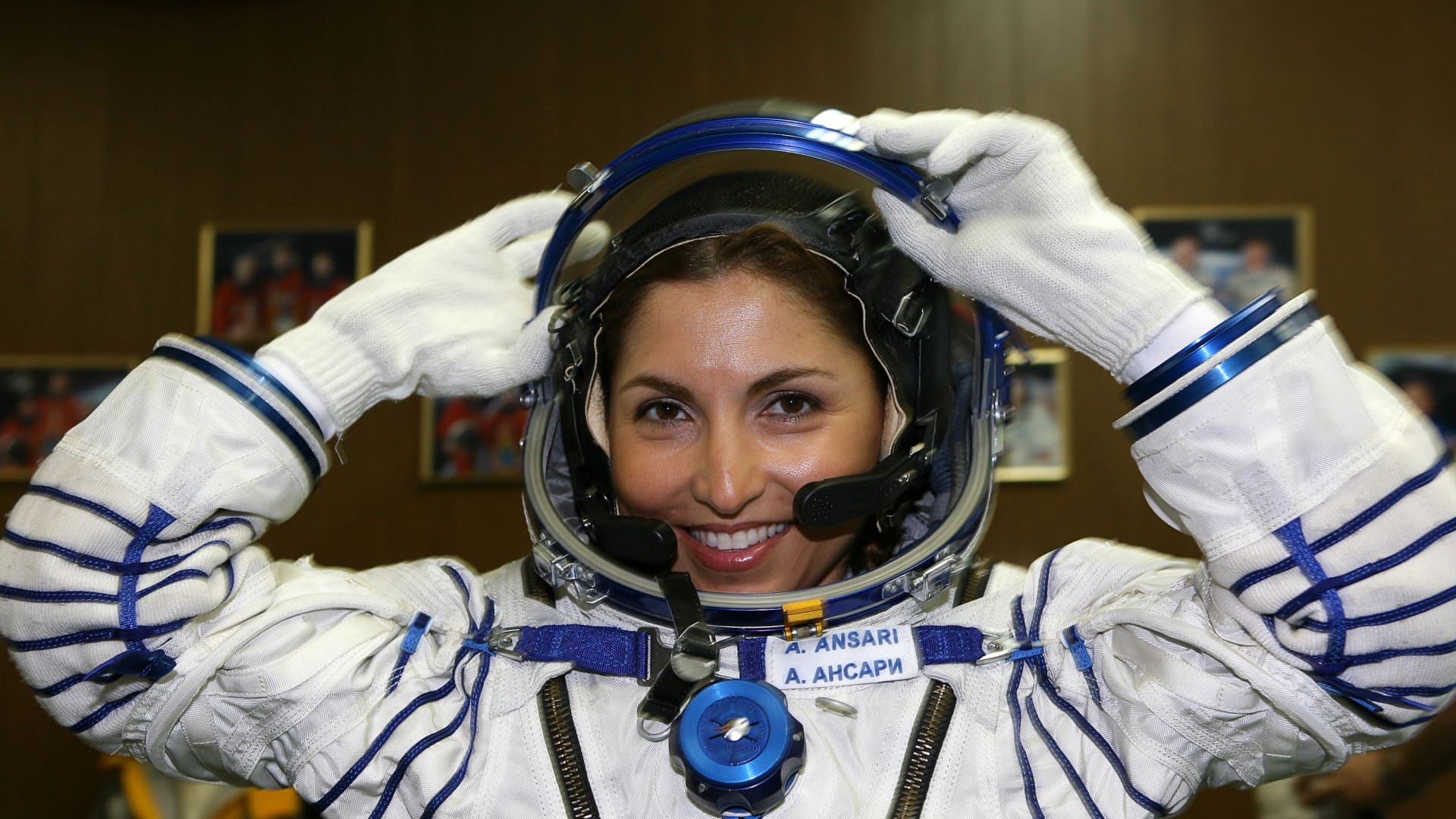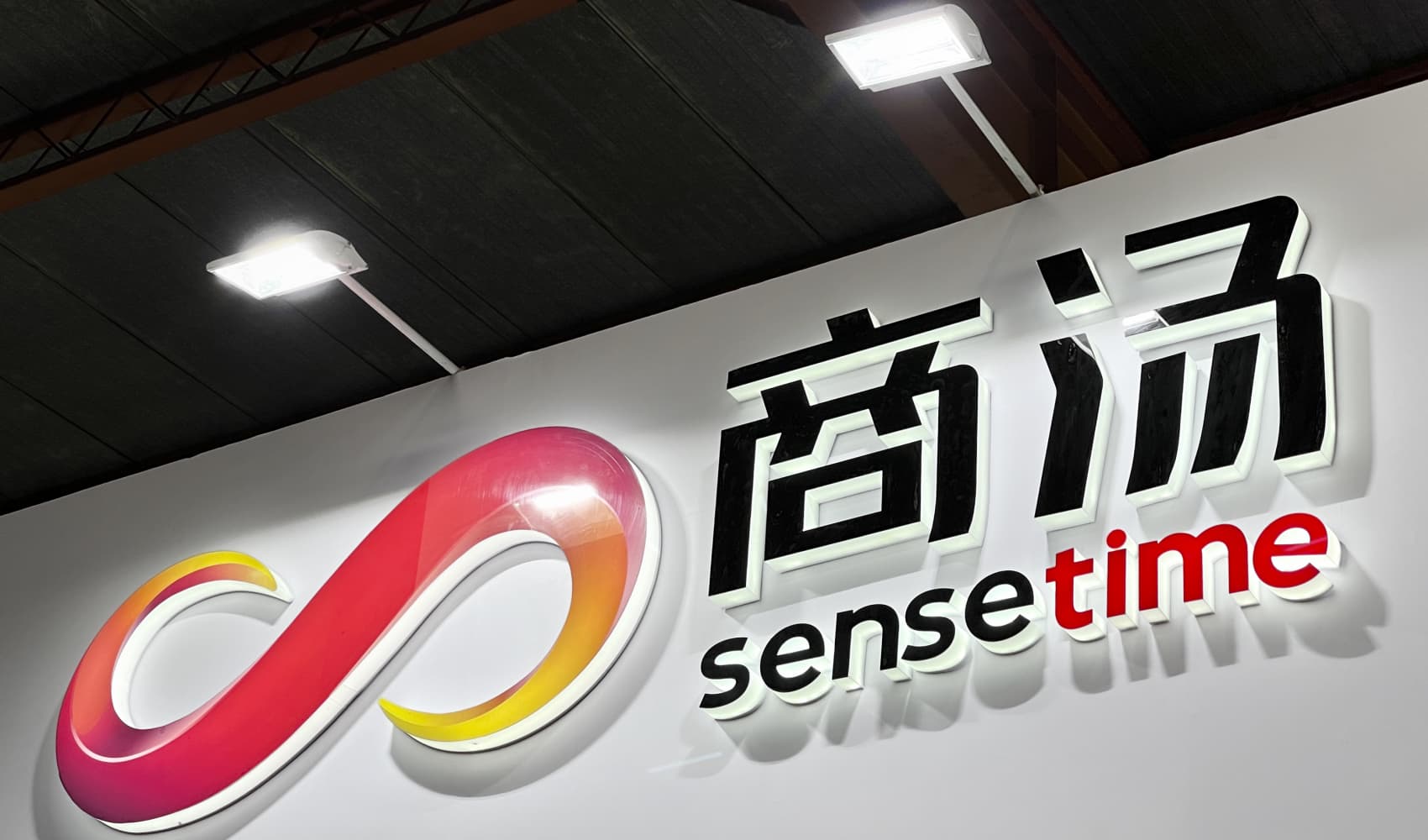
This story is part of the Behind the Desk series, where CNBC Make It gets personal with successful business executives to find out everything from how they got to where they are to what makes them get out of bed in the morning to their daily routines.
Today, Anousheh Ansari is the CEO of XPrize, the non-profit founded in 1996 that hosts public competitions to encourage technological development that benefits humanity — like its most recent partnership with Elon Musk to offer $100 million in prizes for the best carbon capture technology to fight climate change.
But that's just one of Ansari's accomplishments.
For instance, on September 18, 2006, Ansari made history as the first woman and the first Iranian to pay her own way to travel to the International Space Station.
Get San Diego local news, weather forecasts, sports and lifestyle stories to your inbox. Sign up for NBC San Diego newsletters.
A self-made multimillionaire tech entrepreneur, Ansari paid more than $20 million for a seat on Russia's Soyuz spacecraft (via tourism company Space Adventures Ltd.) for the 10-day mission.
"The only distinction you can make when you're out there is that world is so interconnected," Ansari, 54, tells CNBC Make It. "It's not made up of countries or religions, it's made up of oceans, mountains, forests, deserts and clouds."
Ansari dreamed of becoming an astronaut growing up in Tehran, Iran during the 1970s. She would watch reruns of "Star Trek," read science fiction books and attempt to build her own spacecraft.
Money Report
"I don't think anyone took me seriously. They thought it's just childhood talk," Ansari tells CNBC Make It. "They underestimated my persistence."
After immigrating to Virginia with her family at 16 to escape the Iranian Revolution, Ansari learned English and later graduated from George Mason University with a bachelor's degree in electronics and computer engineering and then from George Washington University with a master's degree in electrical engineering.
After a short stint at a D.C. tech company, Ansari and her husband, Hamid, started Telecom Technologies Inc., in 1993 and sold it for an estimated $600 million in 2000.
Ansari used some of that money to fund the first XPrize: $10 million to anyone who could create a spaceship that could safely haul a pilot and two passengers to the edge of space—then repeat the feat within two weeks. (Mojave Aerospace Ventures, co-founded and bankrolled by Microsoft co-founder Paul Allen, won with their SpaceShipOne in 2004.)
In 2018, XPrize Foundation named Ansari the CEO.
"I can't sit down and do nothing. I always want to do more," Ansari says.
Here, Ansari talks to CNBC Make It about growing up in Iran, how she turned her dream of going into space into a reality, partnering with Elon Musk and more.
On finding her passion: Night sky was a 'playing field for my imagination'
Growing up in Iran, I had a life like most Iranian girls. I went to school and had a middle-class family. Nothing extraordinary happened until I was about 12 when the revolution happened in Iran.
That's when things started changing. I was seeing violence and upheaval for the first time in my life. Then the war with Iraq broke out. There was this constant fear of bombings and a scarcity of essentials needs for the family. An explosion happened so close to us that our windows shattered.
But up to that point, all I cared about and wanted to do was study space and go to space.
I just fell in love with what the night skies represented, which was this immense playing field for my imagination. I was a curious young girl and I would have tons of questions that no one could answer.
My passion became trying to figure out what's out there and if there are aliens and praying for the aliens to come and sort of abduct me and show me their world. I was hoping that their world will be better and more peaceful than mine.
The universe we live in is so vast and incredible, it would be arrogant to think we are the only ones alive.
On pursuing her passion for space: 'I don't like to live a life of regret'
I don't think anyone took me seriously. Everyone's like, 'Oh, that's nice,' but I don't think anyone ever thought that [my dream of going to space] is something that would last and that it would ever be possible. But it's become part of my DNA.
Growing up thinking about space, I wanted to [create an] amazing invention that I would be selected to fly my invention to space. I started out by designing spaceships actually. A lot of them looked like saucers. I had all sorts of brilliant ideas as a 10-year-old on how spaceships would go into space.
But it was a path of entrepreneurship that allowed me to later go space. [My husband and family] were understandably concerned about my life, but they were all very supportive as they knew I don't like to live a life of regret.

On her routine: Walking is meditation
I'm a big believer in routines, especially in busy or high-stress environments. Routines keep me calm.
One of the most important parts for me is in the morning. I have to spend at least an hour exercising. It can be a run or riding my bicycle. Something outside of the house. [Ansari lives in Los Angeles, California with her husband, Hamid.]
I do meditation sometimes, but I get to a point that my brain so intense and busy that I can't sit for long. But when I'm walking outside, that's meditation for me. I can shut down everything else, focus.
At night, I try to either watch something that doesn't require thinking at all so I can shut down any thinking power in my head or read something or listen to music.
On being XPrize's first sponsor: 'It made sense to me as an entrepreneur'
When [my husband and I] sold our company, it was the first time I had an opportunity to pursue my dream full-time without having to worry about who's going to support the family. I went back to school and studied astronomy. In parallel, I was looking for the opportunity to find a way for a commercial passenger to go to space.
That's when I met [XPrize founder] Peter Diamandis, who had announced the competition for people to build a spaceship and that [sounded like] a very promising endeavor. I felt like...this is it. If I wanted to go build a spaceship, I will have just one chance of doing it and spending a ton of money. But doing a competition allows me to find the most brilliant creative minds around the globe to build a spaceship. It made sense to me as an entrepreneur.
We became the title sponsor of the first competition that launched [XPrize] that I'm now heading. I've come full circle.
On Elon Musk: 'I remember the early days'
Elon has been a friend of the foundation for many years.
I remember the early days during the time of the Ansari XPrize — he's a member of our board of trustees and we had many conversations around space and the future of commercial space. That was when he was just thinking about launching SpaceX.
[Then] when he was challenged on Twitter about philanthropy [in January], he said it was hard to find good ways to really put a lot of capital on solving problems. That's when our founders started a conversation with him on a competition that we have been working on for several years now, which was this large, audacious competition around carbon capture.
We were fortunate to be able to partner with Musk Foundation because the more attention we can bring to [climate change], the better.
The way we're designing the competition also provides seed funding upfront to small groups of student teams. I think it really will make the needle move very rapidly in the types of innovation we see.
This interview has been edited for length and clarity.
Don't miss more Behind the Desk:
Billionaire Ray Dalio on his routine-free life, what keeps him up at night and his next chapter
A-Rod Corp CEO Alex Rodriguez on his life and career: 'It's an imperfect story'
CEO Wynne Nowland on coming out as transgender: 'I'm much more at peace with myself'






